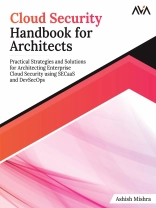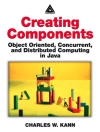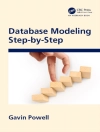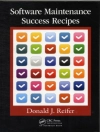DESCRIPTION
Cloud platforms face unique security issues and opportunities because of their evolving designs and API-driven automation. We will learn cloud-specific strategies for securing platforms such as AWS, Microsoft Azure, Google Cloud Platform, Oracle Cloud Infrastructure, and others. The book will help you implement data asset management, identity and access management, network security, vulnerability management, incident response, and compliance in your cloud environment.
This book helps cybersecurity teams strengthen their security posture by mitigating cyber risk when ‘targets’ shift to the cloud. The book will assist you in identifying security issues and show you how to achieve best-in-class cloud security. It also includes new cybersecurity best practices for daily, weekly, and monthly processes that you can combine with your other daily IT and security operations to meet NIST criteria.
This book teaches how to leverage cloud computing by addressing the shared responsibility paradigm required to meet PCI-DSS, ISO 27001/2, and other standards. It will help you choose the right cloud security stack for your ecosystem. Moving forward, we will discuss the architecture and framework, building blocks of native cloud security controls, adoption of required security compliance, and the right culture to adopt this new paradigm shift in the ecosystem.
Towards the end, we will talk about the maturity path of cloud security, along with recommendations and best practices relating to some real-life experiences.
TABLE OF CONTENTS
SECTION I: Overview and Need to Transform to Cloud Landscape
1. Evolution of Cloud Computing and its Impact on Security
2. Understanding the Core Principles of Cloud Security and its Importance
3. Cloud Landscape Assessment and Choosing the Solution for Your Enterprise
SECTION II: Building Blocks of Cloud Security Framework and Adoption Path
4. Cloud Security Architecture and Implementation Framework
5. Native Cloud Security Controls and Building Blocks
6. Examine Regulatory Compliance and Adoption path for Cloud
7. Creating and Enforcing Effective Security Policies
SECTION III: Maturity Path
8. Leveraging Cloud-based Security Solutions for Security-as-a-Service
9. Cloud Security Recommendations and Best Practices
Ashish Mishra
Cloud Security Handbook for Architects [EPUB ebook]
Practical Strategies and Solutions for Architecting Enterprise Cloud Security using SECaaS and DevSecOps
Cloud Security Handbook for Architects [EPUB ebook]
Practical Strategies and Solutions for Architecting Enterprise Cloud Security using SECaaS and DevSecOps
Bu e-kitabı satın alın ve 1 tane daha ÜCRETSİZ kazanın!
Dil İngilizce ● Biçim EPUB ● ISBN 9789395968997 ● Dosya boyutu 1.3 MB ● Yayımcı Orange Education Pvt Ltd ● Yayınlanan 2023 ● İndirilebilir 24 aylar ● Döviz EUR ● Kimlik 9136062 ● Kopya koruma Adobe DRM
DRM özellikli bir e-kitap okuyucu gerektirir












